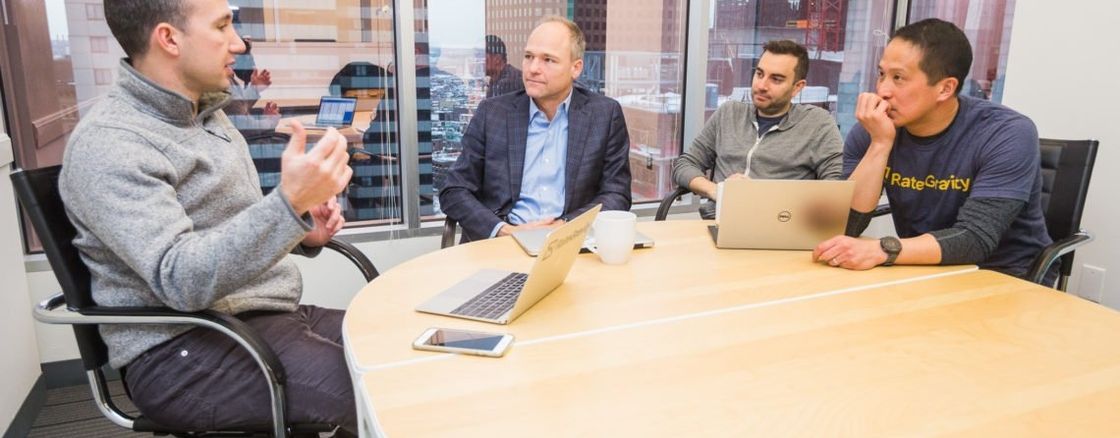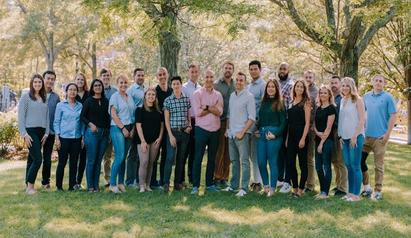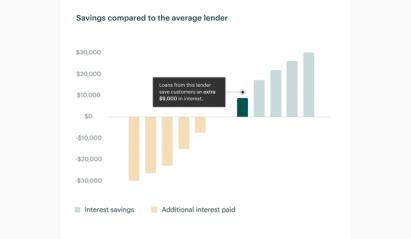A Chat with Own Up Advisor, Former Massachusetts Commissioner of Banks
Written by:
Patrick Boyaggi
Patrick Boyaggi
CEO an Co-Founder
Patrick is the Co-Founder and CEO of Own Up. He has a wealth of experience and knowledge as a mortgage executive.
See full bio

We had a brief sit down Q&A with David Cotney, who is on our Board of Advisors. Prior to working with us, David was Commissioner of Banks for the Massachusetts Division of Banks, where he was responsible for the supervision of nearly 200 state-chartered banks and credit unions holding combined assets of over $400 billion.
Throughout his career, David has stood up for the financial rights of millions by ensuring the solvency of banks, helping end discriminatory lending practices, and creating a national coalition of regulators to ensure the safety of not just Massachusetts residents, but for the entire country.
We at Own Up consider ourselves lucky to be able to benefit from David’s rich experience and insight. We wanted to share some of our most recent conversation with him, which took place at our offices this month.
Of all careers you could have chosen, why did you become a bank examiner?
Because I needed a job. *laughs* I graduated Tufts in 1989, and it was a terrible time for the job market, and the Division of Banks was one of the few places hiring, so I figured, “Why not try it for a year or two?”
But in all honesty, I stayed for 26 years because the Division of Banks continued to present me with greater and greater challenges that I felt were important to real people. Also, I got to work with the people at the Division who were incredibly talented and dedicated. The work they do still inspires me to this day and I am so proud of what we created together as a team.
OU: Can you tell me about some of the most important challenges you faced?
There are so many to talk about … The New England banking crisis, discriminatory lending, the crash in 2007 and 2008. Where would you want to start?
Let’s start with the New England banking crisis.
Following the Savings & Loan Crisis in the mid-80s in Texas and the Southwest, we experienced our own banking crisis in New England starting in the late-80s. Put simply, too many banks had made too many risky loans and investments or they made loans out their market area and didn’t have enough experience.There were many bank failures at the time, and the most notable was the failure of the Bank of New England.
The Division of Banks hired over 75 bank examiners over about two months in response. I was one of those new hires. It was a difficult experience. However, in addition to the failures, there are many success stories, including some banks who continue to serve their communities today due to the hard work of the Division and the bankers who made it work.
Wow. Quite a way to start on the job. What was the next big challenge?
Before the banking crisis had ended, the Federal Reserve Bank of Boston issued a study on discriminatory mortgage lending in the Boston area. The study showed that, even after accounting for differences in savings, income, and credit, there were still disparities in denial rates between white applicants and comparable black and Hispanic mortgage applicants.
I worked on a Community Reinvestment & Fair Lending Policy that, for the first time, tied a bank’s Community Reinvestment Act rating to their fair lending performance. We also went beyond just a “check the box” approach. We implemented guidelines that spoke to the operation of a bank. What is the diversity of your sales force? What are your commission practices? Do you have your own mystery shopping in place to self-police yourself?
I will certainly give credit to the banks and credit unions in Massachusetts who worked hard to address these big societal challenges - challenges made even more difficult by our high cost of living in Boston. I believe the banking community responded well because we did not dictate a particular outcome. Rather, we gave clear guidance and a no tolerance policy for discrimination. How the lenders ensured they were in compliance was up to them.
What were some of the most egregious things you saw?
Well, there certainly were a lot. But one example was the liberal use of white-out. In the run-up to the housing crisis of 2007, we’d see loan officers sending in applications that got rejected for insufficient income. The loan officer would then resend the application with the old income whited out, a new income written in, and the application would get approved. Same borrower, same house, but now approved by the same lender just a few minutes after being rejected.
We also had non-bank lenders and brokers failing left and right. Buyers would be calling my office at the 11th hour saying that their lender, who committed to close, just wouldn’t be able to provide the money. When these calls rolled in, I remember my staff frantically calling other banks just asking if they would take these loans. It was hard, heartbreaking work, but we got most of the people the funds they needed.
What accomplishment are you most proud of?
There are many things that I am proud to have worked on. One, in particular, is the Nationwide Multistate Licensing System, or NMLS. Starting in the early 2000s, it was easy for bad actors to be shut down in one state, then set up shop in a neighboring state to defraud people all over again. As state regulators, we got together to address this problem. I was put in charge of the group to agree on what the uniform licensing process would look like. It was a give and take process but the 50 states were able to find common ground. The NMLS online portal launched on January 2, 2008, with seven states, including Massachusetts, during the middle of the crisis. Just two years later, we had all 50 states on the system to provide a comprehensive system of protecting consumers and supervising the mortgage industry.
Of all the companies you could have worked with after being Commissioner, why did you advise the team at Own Up?
The way that Own Up saves people money just makes sense -- charging a lower commission that doesn’t increase a buyer’s rate and connecting you to local banks. It’s really just a smart evolution of what the business should become.
As a former regulator, I have to mention that there are so many startups that enter the financial space with unrealistic promises about what technology can do and little preparation to comply with all of the rules and regulations. However, I was impressed that Mike and Patrick actually understand and embrace the regulatory requirements of the industry, since they were two former bankers themselves.
Why do you care about local banks?
With no disrespect to your former employer (the author was an executive at Bank of America), you are more likely be treated with better customer service and respect with a local lender. In many cases, their customers are their neighbors so there is a strong incentive to be customer-friendly. In addition, community banks play an outsized role in small business and economic developments. By assets, community banks have less than 15% of all bank assets nationally. However, they make about 45% of the small business loans.
But should people worry about solvency with these smaller banks? Isn’t bigger safer?
Not at all. A customer should have no worry in working with a local lender or bank. In fact, while all banks have FDIC insurance up to $250,000 for a deposit account, many local banks have excess deposit insurance for a customer’s entire account, beyond the FDIC $250,000 limit.
Do you have any parting words or advice for our homebuyers?
Buying a home is likely the biggest investment of your life. Even if you only live there a few years, it is an important decision. Do your homework, particularly if you are a first-time homebuyer, so that you are prepared for the complex homebuying process. Most importantly, be sure you know how much you can afford. For first-time homebuyers, there are homebuyer counseling programs that are very valuable. If you are familiar with the homebuying process, work with a local lender to understand how much you can afford based on your savings and income.
This was fascinating. Thank you so much for your time.


